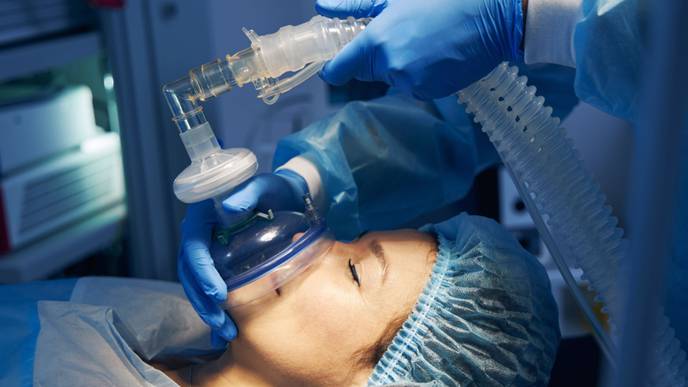ReachMD
Be part of the knowledge.™Patients Taking Popular Medications for Diabetes & Weight Loss Should Stop Before Elective Surgery, ASA Suggests

CHICAGO — With the growing popularity of medications like Ozempic® (semaglutide), Trulicity® (dulaglutide), and other glucagon-like peptide-1 (GLP-1) receptor agonists for the treatment of type 2 diabetes and weight loss, the American Society of Anesthesiologists (ASA) suggests withholding the medication before elective surgery to reduce the risk of complications associated with anesthesia in adults and children.
GLP-1 agonists are approved by the U.S. Food and Drug Administration to treat type 2 diabetes and reduce the risk of cardiovascular disease. The medications are also used for weight loss, as they delay gastric (stomach) emptying, decreasing hunger and reducing how much people eat.
“While there is currently a lack of scientific data on how GLP-1 receptor agonists affect patients having surgery and interact with anesthesia, we’ve received anecdotal reports that the delay in stomach emptying could be associated with an increased risk of regurgitation and aspiration of food into the airways and lungs during general anesthesia and deep sedation,” said ASA President Michael W. Champeau, M.D., FAAP, FASA. “These complications can be serious, so we are providing guidance on when GLP-1 agonists should be stopped in advance of an elective procedure. I would like to thank Karen Domino, M.D., chair of the ASA’s Committee on Practice Parameters (CPP) and Girish Joshi, M.D., vice-chair of the CPP, as well as ASA’s Task Force on Preoperative Fasting for their commitment to patient safety in developing this guidance.”
Initial reports have found that patients who have experienced GI side effects, such as nausea or vomiting, while taking GLP-1 agonists were more likely to have increased residual gastric contents. Children experience GI side effects at a similar rate to adults.
ASA’s Task Force on Preoperative Fasting suggests the following for patients taking GLP-1 agonists for type 2 diabetes or weight loss who are having elective procedures. It is also calling for further research to be done regarding GLP-1 agonist medications and anesthesia.
Day or week prior to the procedure:
- Hold GLP-1 agonists on the day of the procedure/surgery for patients who take the medication daily.
- Hold GLP-1 agonists a week prior to the procedure/surgery for patients who take the medication weekly.
- Consider consulting with an endocrinologist for guidance in patients who are taking GLP-1 agonists for diabetes management to help control their condition and prevent hyperglycemia (high blood sugar).
Day of the procedure:
- Consider delaying the procedure if the patient is experiencing GI symptoms such as severe nausea/vomiting/retching, abdominal bloating or abdominal pain and discuss the concerns of potential risk of regurgitation and aspiration with the proceduralist or surgeon and the patient.
- Continue with the procedure if the patient has no GI symptoms and the GLP-1 agonist medications have been held as advised.
- If the patient has no GI symptoms, but the GLP-1 agonist medications were not held, use precautions based on the assumption the patient has a “full stomach” or consider using ultrasound to evaluate the stomach contents. If the stomach is empty, proceed as usual. If the stomach is full or if the gastric ultrasound is inconclusive or not possible, consider delaying the procedure or proceed using full stomach precautions. Discuss the potential risk of regurgitation and aspiration of gastric contents with the proceduralist or surgeon and the patient.
Full stomach precautions also should be used in patients who need urgent or emergency surgery.
THE AMERICAN SOCIETY OF ANESTHESIOLOGISTS
Founded in 1905, the American Society of Anesthesiologists (ASA) is an educational, research and scientific society with more than 56,000 members organized to advance the practice and secure the future of the medical practice of anesthesiology. ASA is committed to ensuring the involvement of physician anesthesiologists in the medical care of patients before, during and after surgery to provide the highest quality and safest care every patient deserves.
For more information on the field of anesthesiology, visit the American Society of Anesthesiologists online at asahq.org. To learn more about the role physician anesthesiologists play in ensuring patient safety, visit asahq.org/MadeforThisMoment. Like ASA on Facebook, follow ASALifeline on Twitter.
###
Facebook Comments